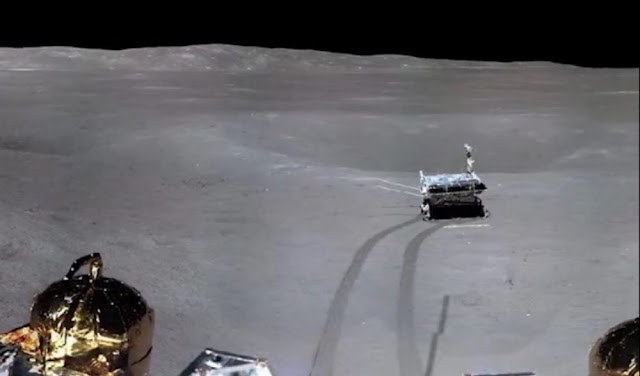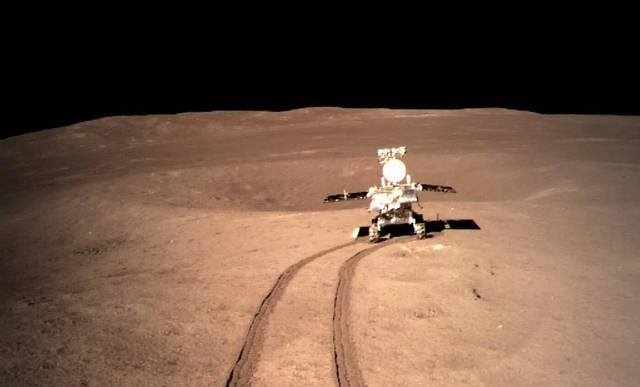When it comes to space exploration, the Chinese space agency
has made history and continues to innovate.
country in human history to land a spacecraft on the far side of the moon, but
they have also grown the first plants on the moon’s surface, paving the way for
the settlement of Earth’s natural satellite.
Chinese scientists began documenting the surroundings
surrounding their robotic explorers after ensuring that the lander, rover, and
the satellite circling the moon, which serves as an intermediary between the
lander, rover, and scientists on Earth, are in good working order. After landing inside the Von Karman Crater in the Aitken
basin, our solar system’s largest impact crater, the Change 4 mission deployed
its lunar rover Yutu-2 onto the Moon’s surface.
What were the outcomes? Stunning photographs and movies of a
completely alien landscape that have never been seen by human eyes before.
China’s Yutu-2 Rover has successfully rolled out onto the
lunar surface. Image Credit: CNSA.
The Aitken Basin, where both the lander and the rover are
stationed, is eight miles deep and has a diameter of roughly 1,600 miles.
The Yutu-2 rover exploring the far side of the moon. Image
Credit: CNSA.
Chinese scientists will conduct mineral and radiation
testing during the flight. Scientists will also have a once-in-a-lifetime
opportunity to analyze minerals on the moon’s far side.
Here are some videos:
[This article is an updated version. China’s rover landed on
the Far Side of the Moon back in 2019. This article has been updated with the latest
images and videos released by the Chinese Space Agency.]





